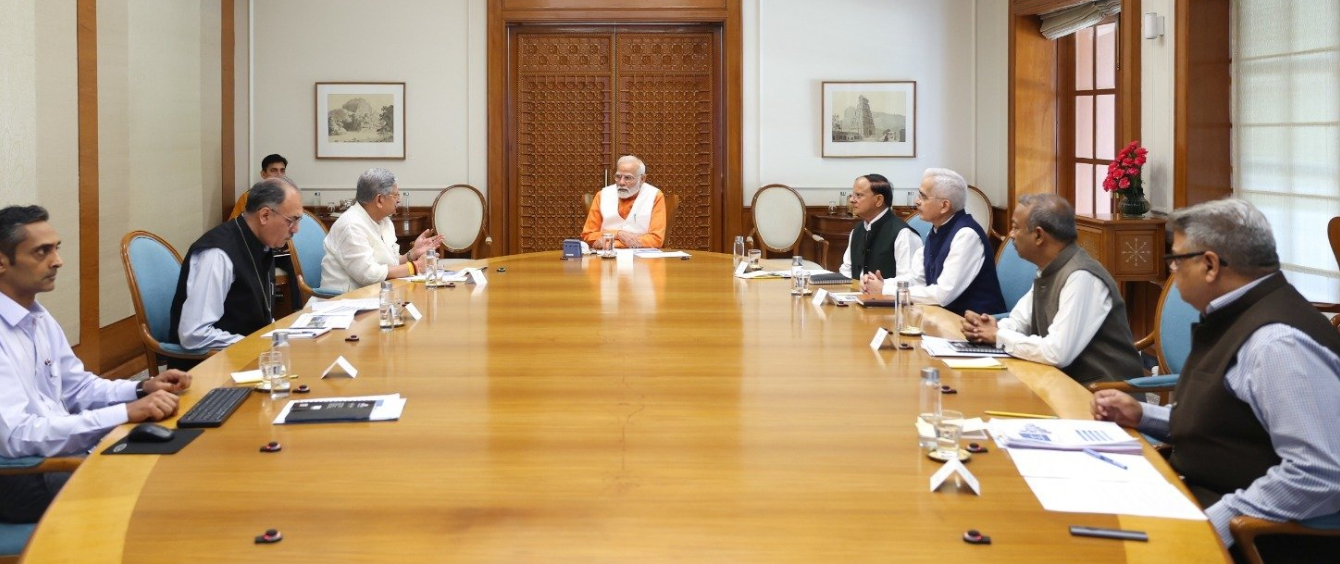
On May 26, 2014, Narendra Damodardas Modi was sworn in as the Prime Minister of India for the first time. Now, 11 years later, his journey as the leader of the world’s largest democracy has been marked by powerful mandates, decisive policies, and a clear mission to reshape India’s standing on the global stage.
Modi’s leadership has taken India to new heights. Under his governance, the country has emerged as the world’s fourth-largest economy, with a bold voice in global affairs. His decisions, often described as unprecedented and unimaginable, have transformed India’s image into that of a confident, fearless, and powerful nation.
One of the defining moments under Prime Minister Modi’s leadership was Operation Sindoor, a strong military retaliation to a terror attack orchestrated by Pakistan. The message was clear—India would not tolerate terrorism and would strike with precision and discipline. Modi’s zero-tolerance policy against terrorism was demonstrated when Indian forces entered deep inside Pakistani territory, destroyed key terror bases, and returned without civilian casualties or collateral damage. The world watched as India showcased its military might, and even Pakistan, which had long threatened nuclear retaliation, realized the cost of engaging with a new, assertive India.
Following the Pulwama terror attack, India delivered a significant blow to terror infrastructure in Pakistan. Nine major terrorist camps were destroyed. In a panicked response, Pakistan bombed 11 of its own airbases, underlining the chaos and fear that gripped its leadership. India’s operations highlighted the discipline of its forces and the strategic clarity of its leadership. Terrorists’ headquarters were directly targeted, showing India's capability to strike with accuracy and strength.
Another turning point came when Modi took a decisive step to scrap the Indus Water Treaty signed in 1960. Until then, India received only 19.5% of the river’s waters while Pakistan enjoyed nearly 80%. With the treaty canceled, Pakistan’s green agricultural belt began to wither, and the country now finds itself craving every drop of water that once flowed freely. This move not only challenged a decades-old agreement but also exposed Pakistan’s heavy dependence on Indian water resources.
The effects were quick to show. Pakistan was thrown into internal chaos with massive protests erupting across cities, especially in Sindh province. Demonstrators went as far as torching the residence of the provincial home minister, highlighting deep public anger. Modi’s calm demeanor coupled with his fierce resolve has sent a strong message—India will no longer bear the cost of Pakistan's proxy war through terrorism. Every drop of Indian blood spilled will be answered with precision and strength.
Prime Minister Modi has declared that Pakistan will have to pay a heavy price for every terror attack. The cost will be borne not just by the military, but by Pakistan’s crumbling economy and its deteriorating infrastructure. Trade and talks have been officially suspended. The only discussion India is willing to have is about Pakistan-occupied Kashmir (PoK). Should Pakistan continue to export terrorism, it will be reduced to begging for every penny. No water. No trade. No tolerance.
In recent months, Pakistan has been hit by dual disasters—flood and drought—within weeks. The country is struggling to cope, both financially and structurally. A recent seminar held by the Pakistan Institute of International Affairs concluded that Pakistan needs years and billions of dollars to build the infrastructure to face such twin calamities. But Pakistan has no money, no time, and no international support. It is facing strategic isolation while India continues to rise.
This transformation is not just about military strength or water treaties. It is about a new India—assertive, strategic, and relentless in its pursuit of justice. Operation Sindoor, symbolic in name and decisive in execution, embodies this new spirit. It is not revenge, but a new form of justice. It is not just anger, but a show of the power of a capable India. First, India struck inside enemy homes; now, it strikes straight at the chest.
Eleven years later, the oath Modi took to build a new India has manifested in multiple ways—bold diplomacy, military strength, strategic clarity, and a zero-tolerance approach to terrorism. As the nation reflects on this transformative decade, one thing is clear: the world is witnessing the rise of a new India—decisive, powerful, and unapologetically firm.
Disclaimer: This article is based on a retrospective analysis of the political and strategic decisions taken by the Indian government under Prime Minister Narendra Modi. It is intended for informational purposes and does not represent any political endorsement. The geopolitical situations discussed are subject to continuous developments.




